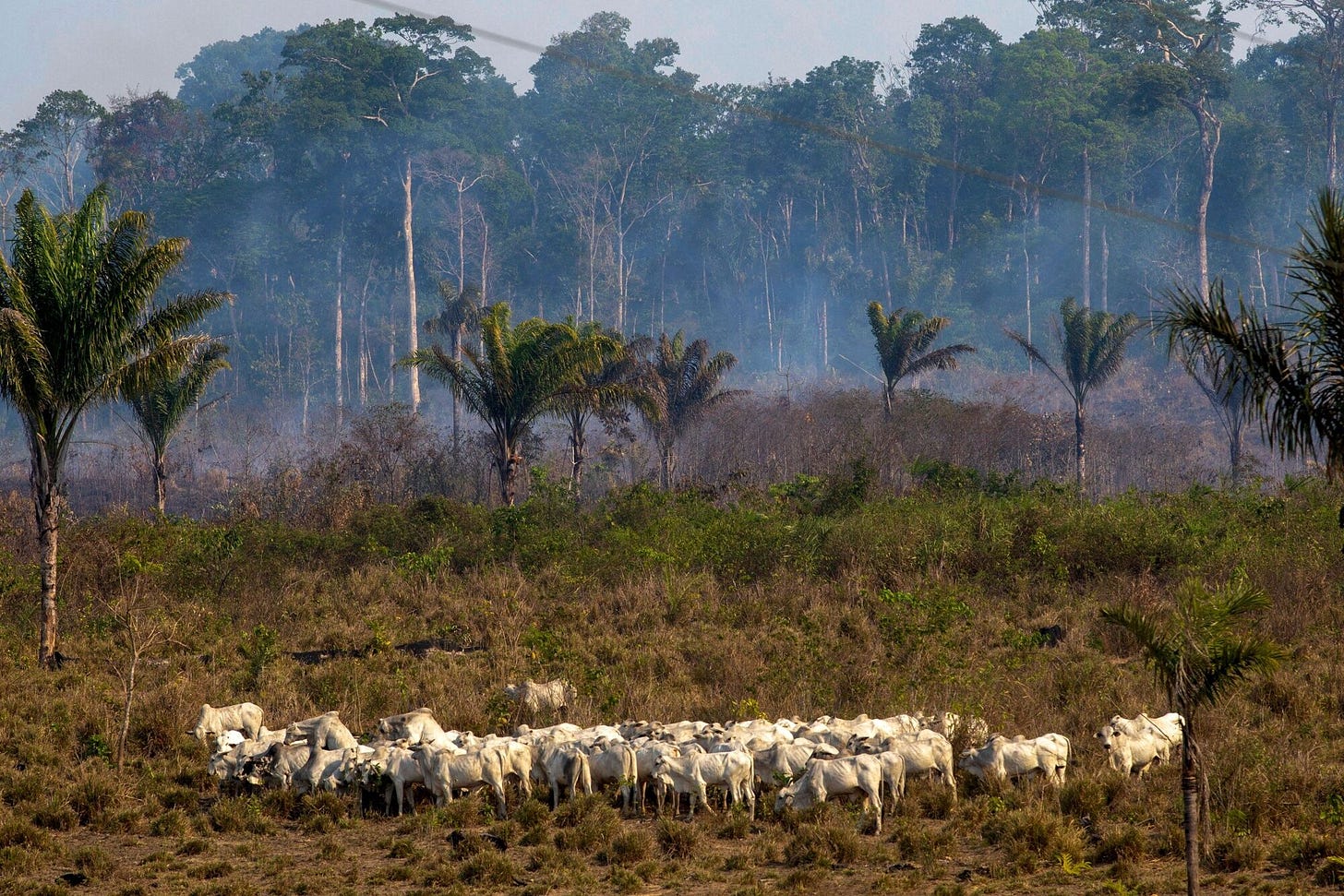Deforestation for Farms as Primary Source of Emissions in Brazil
Short on time? Get a quick rundown of today’s top stories from the ACR:
Food production in Brazil was responsible for 74% of the country's greenhouse gas emissions in 2021, primarily due to deforestation for farms and pastures.
The Mississippi River is facing record low water levels for the second year in a row, causing problems for barge traffic, saltwater intrusion, and water treatment systems in New Orleans.
Deforestation for Farms as Primary Source of Emissions in Brazil
According to a recent study, food production in Brazil was responsible for 74% of the country's greenhouse gas emissions in 2021. The main source of carbon release was deforestation for farms and pastures. Beef production made the largest contribution to emissions, including deforestation for livestock farming and pollution from beef packing plants. And the country's lawmakers have no intentions of slowing down its agribusiness. Brazil is discussing with international investors to secure USD 2 billion in funding to recover degraded pastureland and expand crop acreage. The plan is to establish loans for farmers starting in 2024, with negotiations involving sovereign funds and government-controlled entities in Asia and the Middle East. This funding is part of Brazil's goal to restore 40 million hectares of degraded pasture and increase crop production while also reducing deforestation.
Mississippi River Water Levels Reach Historic Low
The water levels of the Mississippi River in the United States have reached a historic low for the second consecutive year, leading to disruptions in barge traffic and the intrusion of saltwater into the river in the state of Louisiana. This record low is due to an ongoing drought in the South and Midwest. Although recent rainfall may temporarily increase water levels, significant relief is not anticipated until November. Additionally, the reduced flow of the river poses a threat to water treatment systems in New Orleans. Measures are being taken to mitigate the intrusion of saltwater and bring freshwater into intake systems.
Mighty Buildings is a California-based company that uses innovative technology to construct prefabricated homes that are designed to be environmentally friendly. Founded in 2017, their goal was to create a 3D printing platform to help automate the home construction industry while also building structures that can reduce and withstand the effects of climate change.
While aiming to achieve carbon negativity in construction by 2028, Mighty Buildings uses construction materials that are 60% recycled, thereby enabling the company to eliminate 99% of waste. In September, the company raised USD 52 million in funding for the development and expansion of its technology.
Overshooting the Critical Threshold for the Greenland Ice Sheet
Publisher: Nature
Author: Nils Bochow et al.
Publication Date: October 18, 2023
Access the study here.
This study presents important findings regarding the potential impacts of climate change on the Greenland ice sheet. The research emphasizes the critical thresholds that, if surpassed, could lead to significant ice loss and contribute to rising sea levels. By analyzing satellite data collected over a 20-year period, the study highlights the vulnerability of the Greenland ice sheet to climate change. The findings indicate that the ice sheet is at risk of exceeding these critical thresholds, resulting in irreparable ice loss and profound consequences for global climate and coastal regions. However, the findings also indicate that even if global temperatures exceed a 2-degree Celsius threshold, the ice sheet may not completely collapse if temperatures decrease relatively quickly afterward.
The study highlights the immediate need to address climate change in order to prevent additional damage to the Greenland ice sheet. It emphasizes the importance of taking prompt action to limit global warming and decrease greenhouse gas emissions. The research serves as a call to action for policymakers, scientists, and the international community to prioritize efforts in mitigating climate change and implementing strategies to safeguard vulnerable ecosystems such as the Greenland ice sheet.








